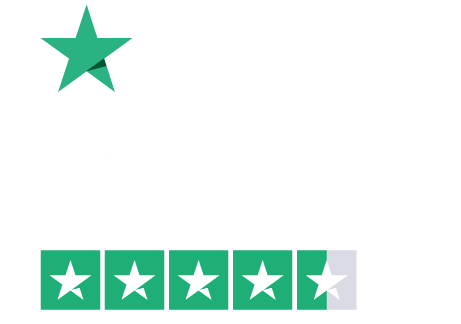Introduction – Why Understanding Sole Trader Pros and Cons Matters Before You Start
Plenty of people dream about being their own boss. No office politics, no approvals to chase; you are just in charge. In the UK, that often leads to one of the most common first steps into business: becoming a sole trader. At first glance, it feels like the simplest route you get going quickly, you are in full control, and there’s not much red tape to cut through. But like most things in business, there is another side to it. It is easy to find advice about how to set up a sole trader business, but what you do not always hear enough about are the trade-offs. Sure, there are obvious advantages to sole trader setups. You do not need a big team or a pile of startup cash. You can work your own way. But there are disadvantages for sole trader routes too, and if you are not aware of them early, they have a way of sneaking up on you. One day, you’re proud of your freedom. The next, you’re staring at your accounts, realizing you are also the only one responsible for every number in them. That is why understanding the full picture the advantages and disadvantages of a sole trader setup is so important. This is not a one-size-fits-all situation. What works for someone else might not work for your goals, or your lifestyle. And while many people lump self-employment vs sole trader into the same box, there are real differences that are worth knowing before you start. In the pages ahead, we are going to walk through the reality of it all. The benefits of being a sole trader, yes, but also the lesser-known parts, like stress, liability, and what it means when your business income is also your personal risk. You will also come across common sole trader drawbacks that do not always show up in the marketing copy. The goal here is simple: give you a clear-eyed look before you register for anything. If you are going to build something of your own, you should know exactly what you are stepping into.
What Is a Sole Trader and How Does It Work in the UK?
Let’s say you have an idea. You are good with your hands, you are a designer, or you have just had enough of working for someone else. You want to start small, on your own terms. That is where the sole trader model usually comes in. In the UK, it is the most common way to get a business off the ground. A sole trader business is simple: you run everything yourself, and in legal terms, there’s no separation between you and the business. There is no company in between. That means you get the profits directly, but you also take on any debt or responsibility yourself. No middle layer. No one to share the blame. What’s appealing is how fast you can start. You register with HMRC as self-employed, and you are settled. There is no need to create a limited company or deal with extra paperwork. A lot of people find that freedom refreshing. That is part of why the UK sole trader route is so common among freelancers, tradespeople, and folks trying to build something small and manageable. But here is the thing that trips people up. Being self-employed and being a sole trader are not always the same thing. The phrase ‘self-employment vs sole trader’ comes up a lot, because while all sole traders are self-employed, not everyone who is self-employed is a sole trader. You could be part of a partnership or working through your own limited company and still be classed as self-employed for tax. So, is this model right for everyone? No, not really. It’s easy, yes. But that doesn’t mean it comes without burden. The sole trader business structure puts you in control, which also puts the weight on your shoulders. And depending on what you are building, that might be too much, or it might be exactly what you need.
Sole Trader Business Structure Explained
When you hear someone say they are a sole trader, they usually talk about running a business on their own without forming a company. It’s a very direct way of working, as it doesn’t require setting up a separate business entity. You trade for yourself. What that means, in plain terms, is that you are responsible for everything. You keep what you earn, yes but if anything goes wrong, like a customer complaint or a debt, you’re personally liable. There is no legal wall between you and your business activities. Some people like it that way. It gives them control. No one else gets a say in how things are run. You don’t have to report to or register with any board or oversight body There is just you, your work, and your name on the line. For small setups or independent trades, that often makes sense. The sole trader business structure is minimal and flexible, which is great until something unexpected happens. Then, you are on your own. And that is where simplicity becomes a risk.
Sole Trader Registration Process in the UK
If you decide to go this route, getting started is surprisingly easy. To become a UK sole trader, you do not have to register a company or fill out long legal documents. You just let HMRC know that you have become self-employed. It is a short form. You give them your name, the nature of your work, and your start date. They’ll send you a Unique Taxpayer Reference (UTR), which you’ll use when submitting your Self-Assessment each year. That is the main obligation: filing your own tax return annually and paying what you owe. There is no charge to register, and you are free to trade under your own name or business name if you prefer. That’s why the sole trader registration process is simple. Missing the paperwork or forgetting to tell HMRC on time can come back to bite you later, usually in the form of a fine.
Do I Need a Business Account for a Sole Trader?
Technically? No. You do not have to open a separate bank account when you are working as a sole trader. You can use your personal account and still be fully compliant. A lot of people do that, especially in the early months when their income is still low. But just because you can does not mean you should. Once you mix business and personal spending, it is hard to separate the two. That becomes a problem when you are trying to figure out your expenses for tax or prove income to a lender. Sorting through a year’s worth of mixed-up transactions is not how most people want to spend a weekend. Opening a second account is not expensive or difficult. Most banks offer basic business accounts, and many come with features that help you track income and costs. It also sends the right signal to clients, to banks, and to yourself that you are treating your business professionally. So, while the legal answer to ‘Do I need a business account as a sole trader?’ is no, the practical answer is probably yes, definitely if you want to stay organized and avoid headaches later.

Key Advantages of a Sole Trader Business Model
Starting out on your own can feel like a lot. You have ideas, even a plan, but the rules and structures can be overwhelming. That is why becoming a sole trader appeals to so many people. It cuts out a lot of red tape and lets you get to work. This route is popular not just because it is easy to set up, but because it offers a kind of flexibility that is hard to find in other business models. For many people, especially those working solo, the advantages go beyond the surface. Here’s what that looks like in practice.
Full Control and Decision-Making
Working for yourself means calling the shots. There is no committee, no partner, and no boardroom to answer. You decide who to work with, what to charge, when to stop, when to scale, and when to say no. Some days, that is a lot to carry. But it also means you can move quickly. You do not need permission to try something new. If something is not working, you can change direction tomorrow. That freedom to steer things your way is one of the clearest benefits of being a sole trader, and it’s something people don’t easily give up once they’ve had it.
Tax Advantages for Sole Traders
You can write off tools, supplies, travel, and other essentials. If you are working from home, you can even claim a portion of your rent or utility bills. These kinds of deductions help lower your tax bill legally. The tax advantages for sole traders will not make tax fun, but they do make it more manageable, especially if you are keeping clean records throughout the year.
Easier Setup and Lower Costs
Becoming a sole trader does not involve much red tape. No company registration. No solicitor. You let HMRC know you are self-employed, and that is it. You are good to go. Because of that, the upfront cost is nothing. You are not spending money before you make it. There is no mandatory office space. You can work from home, in a café, or workshop, wherever you are comfortable. It’s why the sole trader business model is so appealing to people trying out an idea or building something part-time. It doesn’t demand much of you in the beginning.
Simplified Sole Trader Bookkeeping
You do not need accounting software. You do not need an accountant, at least not right away. You just need to know how much money came in and how much money went out. When you are a sole trader, you only deal with your own income and your business expenses. No payroll. No balance sheets. No director reports. You keep a record of your invoices, hold onto your receipts, and fill in your tax return once a year. That’s it. That is what makes sole trader bookkeeping so manageable even for those who aren’t confident with numbers. Keep it honest and organized, and you are ahead of the game.
Prefer watching instead?
Here’s a video summary for you


Common Disadvantages of Being a Sole Trader in the UK
Going solo has its perks, for sure. But if you are thinking about setting up as a sole trader, it is important to look at what could make the journey a bit harder. Not every challenge is obvious at first. A few things sneak up on you once the work starts piling up, or when unexpected costs hit. What follows is not meant to scare you; it is just what people wish they knew when they started. Things that don’t always appear in guides or get discussed on business forums. But it matters, especially if you are trying to turn this into something long-term.
Unlimited Liability and Financial Risk
Let’s get straight to it: if something goes wrong in your business, it’s on you. There is no protective shell. If a client sues, if you fall behind on a payment, or if your business goes under, your personal savings, car, or even your home could be at risk. It sounds dramatic, but that is the truth. This is a core disadvantage of being a sole trader. There is no legal separation between your personal and business life. The other side of freedom is exposure. And if you are in a trade or industry with even a small level of risk, this part matters a lot more than people think.
Limited Access to Capital and Credit
Here’s something that catches people off guard: you might struggle to get funding. Banks and lenders prefer businesses with structure. A limited company often looks more stable on paper. A sole trader, on the other hand, is just you. That means you may rely more on savings, personal credit cards, or informal loans. And when it is time to expand, buy new gear, rent workspace, or hire someone you might find those options limited. This is one of those sole trader drawbacks that does not show up immediately. It creeps in once you are ready to grow, and suddenly, the road forward gets narrower.
Personal Tax and Compliance Burdens
Even though the tax process is simpler in theory, the stress still adds up. There is no payroll team or finance person to chase receipts for you. You track it. You report it. You deal with HMRC if something does not line up. When your income rises, things get messier. Deadlines become harder to manage. And if you make a mistake, the penalties fall on you, not some faceless company. You are on the hook. These sole trader tax obligations do not look too bad on a checklist, but they build over time. It’s fine when you are just getting started. But after a year or two? You will want help or risk falling behind.
Loneliness, Burnout, and Workload Pressure
This one is not about tax or legal risk; it is about day-to-day. When everything rests on your shoulders, the pressure does not take long to show up. Some weeks, it will feel like you are working nonstop. No sick days, no backup. If you stop, the business will stop. And then there is loneliness. Working alone has its charm at first. Quiet mornings, no office politics, total focus. But give it six months. You start to miss having someone bounce ideas off. You notice the silence between tasks. These emotional and mental challenges are real. And they are some of the most underrated disadvantages of sole trader setups. No one talks about them much, but they matter just as much as tax codes and contracts.
Is the Sole Trader Business Right for You?
Sometimes you just want to start. You might have a skill, a plan, or maybe you’re still figuring it out. You are tired of waiting for the “perfect” moment or the perfect setup. In that case, becoming a sole trader is the easiest way to just get moving. No big forms, no legal costs, just tell HMRC you’re ready to go. Here’s something most people don’t realize until they’re in it, everything falls on you. There’s no backup team; it’s just you handling everything. You are the one sending invoices, chasing payments, keeping receipts, answering emails. It sounds obvious, but the weight of that only really hits after a few months. Some folks like that. They prefer to work alone, to have full control. They are not interested in hiring people or building a huge brand. They just want to earn, manage their time, and keep it simple. And for them, this structure works perfectly fine. Others? Not so much. If you are aiming to grow something big, or you know you will need funding down the line, this model might feel limiting. And that’s not a failure it just means your business might need more structure sooner than you expected. There is no shame in starting small and adjusting later. Many people do. But before you dive in, it helps to get clear on what you are willing to handle on your own. Read up on the advantages and disadvantages of a sole trader setup. Sit with it. If it still feels right, go for it. If it doesn’t, that’s useful insight too.
How Lanop Can Help You Start as a Sole Trader
Let us be honest, starting a business might sound easy when you first look into it. But once you are in it, even something as straightforward as being a sole trader can raise a dozen questions. When do I register? What can I claim? Am I keeping the right records? What if I mess something up? That is where we come in. We have worked with people at every stage, some just getting started, others already running and trying to catch up on paperwork. Most of them had the same thing in common: they were trying to do it alone and were tired of guessing. At Lanop, we do not give you generic steps or point you to a long form. We talk it through. What you do, what you earn, where you are headed. Then we will help you set it up right. If you are already set up, we will check what is missing. No pressure. No upsell. You’ll likely need help at least once. You want someone to handle your tax return every year. Either way, we work with whatever makes sense for you. We are here to simplify things, not complicate them. If you are unsure about something, ask a question. That’s where it all starts.
Conclusion Plan Smart Before Choosing the Sole Trader Path
This is not something you decide in one sitting. For some people, working as a sole trader makes sense straight away. For others, it takes time to weigh everything, the freedom, the pressure, the lack of backup. You might like the idea of handling things by yourself. No meetings. No red tape. Just you doing what you do best. But that also means there is no help when things get messy. No one catches the stuff you forget. That trade-off? It’s not for everyone. What matters is that you don’t choose it just because it is the quickest route. Take a good look at your goals. What are you trying to build? And can this structure carry that weight? There is no shame in changing course later. A lot of people start here, learn as they go, and shift when the time is right. But before you start, get clear on the advantages and disadvantages of a sole trader setup. Not just on paper but in practice, in your life. Start smart. And on your own terms.
FAQs on Starting and Managing a Sole Trader Business
How do I become a sole trader in the UK?
The first thing you need to do is tell HMRC you are self-employed. That is how you officially register as a sole trader. There is no need to set up a limited company. You will not go through Companies House. Just head to the HMRC website, fill in your details, your name, address, the type of work you are doing, and submit the form. They will send you something called Unique Taxpayer Reference in the post. That is your ID for tax. Once that is done, you are in business. You will need to keep records and file a tax return each year, but it is all very doable.
Do I need a business account for a sole trader?
You are not required to have one. As a sole trader, you can use your personal bank account if you want. But here is the thing keeping, everything in one place gets messy quickly. Imagine trying to figure out which transaction was for groceries, and which was for a client’s expense. It turns into a headache fast. Most people I know open a separate account early on, just to keep things clean. It does not have to be fancy. Even a basic current account works. It makes your life easier, especially when it is time to sort out your taxes.
Do sole traders pay corporation tax?
No, they do not. Sole traders are not companies, so they do not pay corporation tax. Instead, you are taxed as an individual. You report what you earn through Self-Assessment, and you pay income tax on your profits. If you earn over a certain amount, you will also need to pay National Insurance. That is really it. There is no separate business tax, it is all treated as your personal income. Just keep in mind, you will still need to track your earnings and claim any allowable expenses. Staying organized makes tax time easier, even if the process is simpler than it is for limited companies.
How do I register as a self-employed sole trader?
To register as a self-employed sole trader, you need to tell HMRC you have started working for yourself. It is not complicated. Go to their website, fill in a form with your details, your name, address, type of work, and when you started. After that, they will send you a Unique Taxpayer Reference post. That is your ID for tax purposes. From then on, you will file a Self-Assessment tax return each year. Just make sure you do it before the deadline. If you have already started trading, you have got until the following October to register without getting fined.









